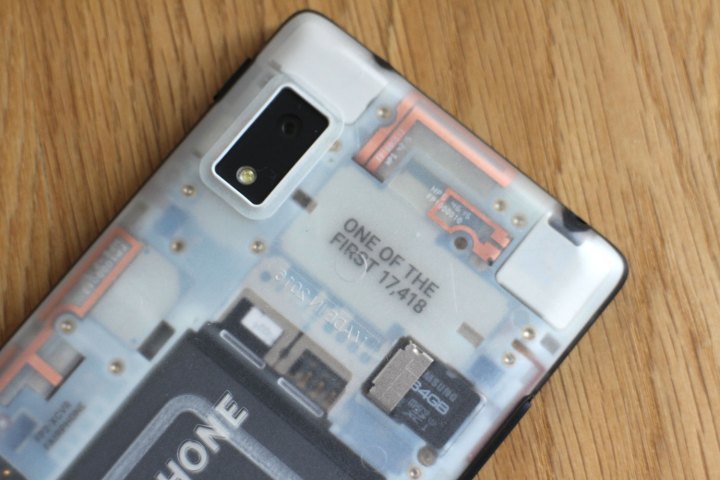

Any Fairphone 2 owners out there will be glad to hear that the device is set to get an Android 6.0 update in the “next few weeks.” We bemoaned the aging version of Android that the device was released with in our review, so that’s good news, although we could point out that Android 7.0 Nougat is available now.
The sustainability message was front and center, and we learned that Fairphone has shipped nearly 100,000 waste phones back from Ghana to date in order to extract and reuse the minerals within. It also continues to work to find alternatives to conflict minerals and to improve the efficiency of the supply chain to reduce the environmental footprint of its devices.
The modular design of the Fairphone 2 makes it very easy to repair, in fact it’s the only device to get full marks from iFixit for repairability.
“This is the first and only smartphone to receive a perfect score from us, and the modular design is a major factor,” explained iFixit Director, Matthias Huisken. “It was very impressive to be able to replace the display in seconds without any tools.”
Easy repairability and modularity is all about trying to extend the life of the device. That means the forthcoming new camera module, which includes the front and back cameras, will be easy for owners to fit, requiring just three screws.
Fairphone offers a wide range of modules for core phone functions, including the battery, which Huisken described as a “death clock” for devices with batteries that can’t be replaced. Fairphone has sold 70,000 spare parts so far and DIY repairs have scored a 95-percent success rate.
A number of Fairphone partnerships were also highlighted during the conference, including with Ubuntu, Jolla’s Sailfish, and Teclib’s Uhuru Mobile.
In the immediate future, Fairphone intends to improve its modular-part ecosystem, hoping to make it as easy as possible to extend the life of its products. It’s also working to strengthen business links where there’s fresh interest in the idea of an easily maintainable phone that will last for five years or more.


